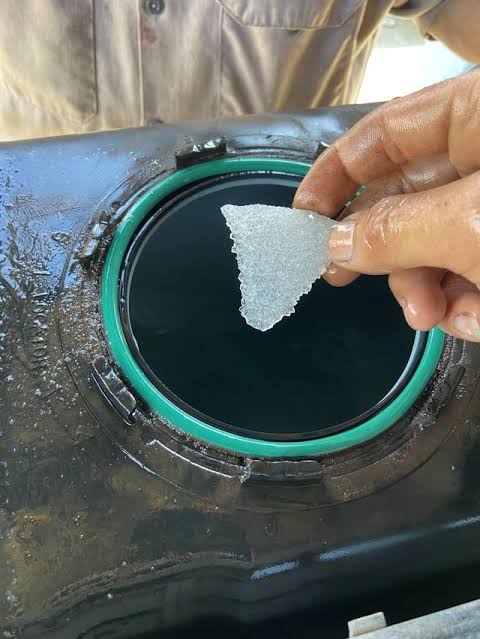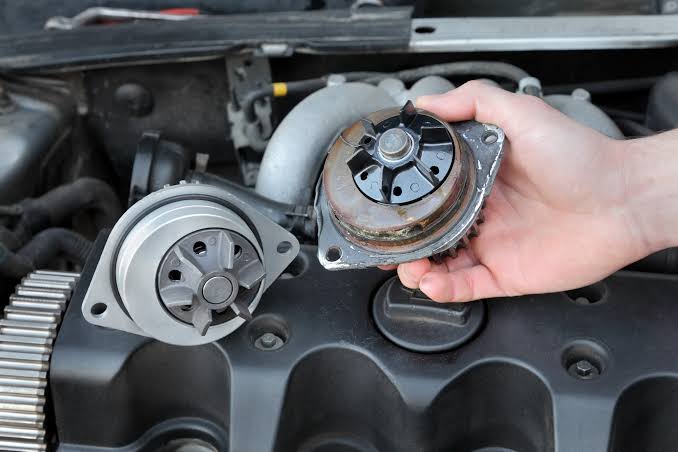Does Head Gasket Sealer Work?

A failing head gasket can lead to expensive repairs, and many car owners look for cost-effective solutions to avoid replacing it entirely. Head gasket sealers are marketed as a quick and affordable way to fix minor leaks in your head gasket. But do they really work? In this article, we’ll explore how head gasket sealers function, their effectiveness, when to use them, and their limitations.
What Is a Head Gasket Sealer?
A head gasket sealer is a liquid solution designed to temporarily repair leaks in the head gasket. It works by flowing through the engine’s coolant system and sealing small cracks or gaps in the gasket or nearby surfaces.
How It Works
- Heat Activation: Most sealers activate when exposed to high engine temperatures.
- Bond Formation: The sealer hardens to form a bond that plugs the leak.
- Temporary Solution: It provides a short-term fix for minor leaks, delaying the need for a complete gasket replacement.
Can a Head Gasket Sealer Fix All Leaks?
Head gasket sealers are not a universal solution. Their effectiveness depends on the type and severity of the leak.
Types of Leaks a Sealer Can Address
- Small External Leaks: Sealers are most effective on minor external leaks where coolant or oil is seeping from the gasket.
- Combustion Chamber Leaks: Some high-quality sealers can temporarily fix small internal leaks affecting compression.
Leaks a Sealer Cannot Fix
- Severe Gasket Damage: If the gasket is completely blown or severely warped, a sealer won’t work.
- Physical Damage to Engine Parts: Cracks in the engine block or cylinder head require mechanical repairs.
Pros of Using a Head Gasket Sealer
1. Cost-Effective
Using a head gasket sealer can save you hundreds or thousands of dollars compared to a full gasket replacement.
2. Easy to Use
Most sealers are straightforward to apply and don’t require specialized tools or mechanical expertise.
3. Temporary Fix
A sealer can buy you time to save up for a proper repair or replacement.
Cons of Using a Head Gasket Sealer
1. Not a Permanent Solution
Sealers are designed for temporary fixes and may fail over time, especially under high engine stress.
2. Potential Side Effects
Improper use of a sealer can clog other parts of the cooling system, such as the radiator or heater core, leading to additional issues.
3. Limited Effectiveness
Sealers are only suitable for minor leaks and may not work on more severe damage.
How to Use a Head Gasket Sealer
If you decide to use a head gasket sealer, follow these general steps:
1. Choose the Right Product
Not all sealers are the same. Look for a high-quality product that is compatible with your vehicle’s engine type.
2. Prepare the Engine
- Allow the engine to cool completely.
- Drain the coolant system if required by the product instructions.
3. Apply the Sealer
- Shake the bottle well.
- Pour the sealer into the radiator or coolant reservoir, as directed.
4. Run the Engine
- Start the engine and let it idle for the recommended time to allow the sealer to circulate and harden.
5. Monitor the Results
- Check for leaks and ensure the engine is running smoothly.
- Refill the coolant system if necessary.
When Should You Use a Head Gasket Sealer?
Using a head gasket sealer can be a good option in the following scenarios:
- You Need a Temporary Fix: If you need a quick solution to keep your car running for a short period.
- The Leak Is Minor: Sealers are best for small, manageable leaks.
- You Can’t Afford Immediate Repairs: It can buy time until you can afford a proper gasket replacement.
When Should You Avoid Using a Head Gasket Sealer?
- The Leak Is Severe: If the gasket is completely blown or the engine is severely damaged, a sealer won’t work.
- You Have a Clogged Cooling System: Using a sealer in a system that’s already compromised may cause more harm than good.
- You’re Looking for a Permanent Fix: A sealer should not replace a full head gasket repair.
FAQs
1. How Long Does a Head Gasket Sealer Last?
Most sealers provide a temporary fix that lasts a few months to a year, depending on driving conditions and engine stress.
2. Can Head Gasket Sealer Damage My Engine?
Improper use or overuse of a sealer can clog the cooling system, leading to overheating and other issues. Always follow the manufacturer’s instructions.
3. How Much Does a Head Gasket Sealer Cost?
Sealants typically cost between $10 and $50, making them an affordable option for minor repairs.
4. Do All Mechanics Recommend Head Gasket Sealers?
Many mechanics view sealers as a last resort and recommend replacing the gasket for a permanent solution.
Conclusion
A head gasket sealer can be a useful tool for addressing minor leaks in your engine, but it’s not a one-size-fits-all solution. While it offers a temporary fix for small leaks, it’s not a substitute for proper repairs. If your head gasket is failing, assess the severity of the damage and consult a mechanic to determine the best course of action.
When used correctly, a high-quality head gasket sealer can help extend the life of your engine and buy you time to plan for more extensive repairs. However, for long-term reliability, replacing the head gasket is the ultimate solution.
Also Check:





